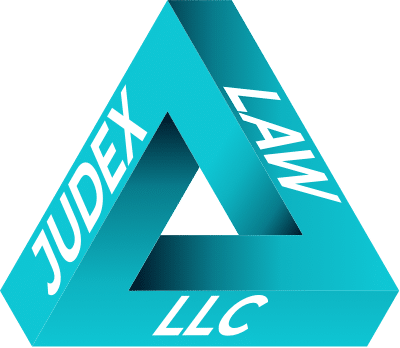As a financial advisor, you likely know that industry rules and regulations shift and change relatively frequently. It can be challenging to keep up with each new update, and you may find yourself caught up in a situation where the rules you’re familiar with no longer apply. Within the last few years, the Financial Industry Regulatory Authority (FINRA) has taken steps to further protect the public from member firms and individual brokers acting in bad faith. In February 2023, the Securities and Exchange Commission (SEC) formally approved a FINRA rule proposal that allows FINRA to disclose a brokerage firm’s “restricted” status on BrokerCheck. This action accompanied several other rule changes, including the implementation of measures designed to penalize high-risk firms exhibiting a significant history of misconduct. This post will explore the details and implications of FINRA’s newly enacted Rule 4111 so you can gain a clearer understanding of its impact throughout the financial industry.
What the “Restricted” Label Means
FINRA’s mission statement reads, “We work towards finding common solutions to create a regulatory environment that promotes collaboration, innovation, and fairness. We do this so that investors are safe, while having the opportunity to participate in America’s capital markets.” To support this goal, FINRA submitted several proposed rule changes to dissuade member firms and individual brokers from engaging in high-risk activities or threatening investors’ best interests. According to FINRA Rule 4111, which was approved recently by the SEC, FINRA’s Department of Member Regulation will conduct an annual review using “Preliminary Identification Metrics” to determine whether a member firm qualifies as “Restricted.” If the firm meets the preliminary criteria, the department will conduct further investigations and consult with the firm to discuss the concerning activities.
What Happens When a Firm is Labeled as “Restricted”?
Once a member firm has been designated as a “Restricted Firm,” it will be required to “establish a Restricted Deposit Account and deposit in that account cash or qualified securities with an aggregate value that is not less than the member’s Restricted Deposit Requirement, and shall be subject to such conditions or restrictions on the member’s operations as determined by the Department to be necessary or appropriate for the protection of investors and in the public interest.” The funds deposited in this account may be used to fund arbitration awards or for other FINRA-approved purposes. The following year, Restricted Firms have the opportunity to demonstrate that the label no longer applies to them. However, the firm must undergo an application process to have this label removed.
Restricted Labels and BrokerCheck
With the SEC’s approval of FINRA Rule 4111, FINRA will start disclosing a member firm’s “Restricted” status on BrokerCheck, effective as of June 1, 2023. This label signals to investors that FINRA has decided that this firm poses a significant risk based on “firm and individual regulatory disclosures compared to firms of a similar size.” With this update, members of the public will be able to look up a firm and see the Restricted label, providing more transparency to investors and holding member firms accountable for their high-risk or bad-faith activities. However, industry experts have expressed concerns about FINRA’s use of this label, as the broad term “Restricted” does not tell the whole story. For instance, it will not be clear whether the label indicates a one-time issue or a robust history of misconduct. Although FINRA views this rule change as a good safety measure designed to protect investors, those throughout the securities industry wonder how dramatically it will affect member firms and individual brokers.
Anticipating the Impact on Individual Brokers
First, it’s important to understand that the “Restricted” label will not apply to a financial advisor’s individual BrokerCheck page. However, if FINRA has designated your firm as Restricted for whatever reason (whether there is a significant pattern of misconduct or a few isolated events), potential customers may look elsewhere and drift away from working with your firm. As a result, you could lose potential clients who are deterred by what they see on BrokerCheck. Additionally, since FINRA sides with the public, you may find yourself the subject of a baseless, inaccurate, or downright false customer dispute. Unfortunately, the customer dispute information will be entered into BrokerCheck, even if there is no merit to the complaint. FINRA assumes the disclosure is valid until proven otherwise, so it’s up to you as an individual broker to take this matter to arbitration by making an expungement request. This process can be overwhelming and time-consuming, especially as FINRA has taken steps to narrow the amount of expungement requests it grants. If you have an unfair customer disclosure on your BrokerCheck profile, you may find it hard to join a new firm, as the employer will likely want to avoid taking on financial advisors with dispute information that could lead to a “Restricted” designation.
How a Trusted Securities Law Attorney Can Help
Despite vocal concerns about FINRA’s proposed rule changes from professionals throughout the financial industry, the SEC approved these amendments with the aim of protecting the public from risky firms. As the rules start to take effect, we will start to notice and measure their impact on member firms and individual advisors. If you have been victimized by an unfair or inaccurate customer dispute, enlist the guidance of a trusted and experienced securities law advisor as soon as possible. Together, you can assess your options for seeking an expungement to remove this erroneous information before it causes irreparable harm to your professional reputation.
If you need help navigating a FINRA-related dispute, call Judex Law, LLC, today at (303) 523-4022 to discuss your goals with a dedicated and friendly securities law attorney.

